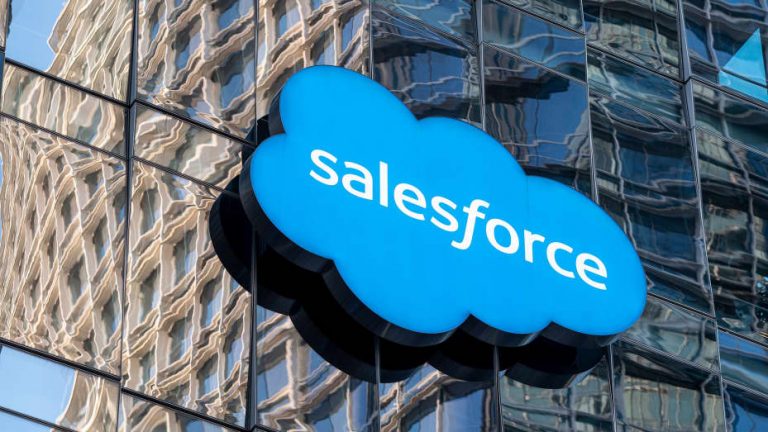
Salesforce has announced a fresh round of price increases for several of its flagship cloud products, doubling down on artificial intelligence as the centerpiece of its future—even as mounting concerns about the actual capabilities of its AI tools raise questions about whether the tech is ready for prime time.
Starting August 1, the company will raise prices by an average of 6% for Enterprise and Unlimited editions of Sales Cloud, Service Cloud, Field Service, and selected Industry Cloud offerings. Products under the Starter, Pro, and Foundations tiers will be exempt from the hike. This follows a 10% across-the-board increase implemented just last August, which Salesforce similarly justified by citing growing AI integrations.
The Agentforce Rollout: Salesforce’s Big AI Bet
The price bump comes as Salesforce officially launches two versions of its new AI platform, Agentforce, which the company claims will deliver a new era of automation across customer relationship management and enterprise workflows. These tools are designed to deploy AI agents—autonomous software components meant to perform multi-step tasks with little human involvement.
Register for Tekedia Mini-MBA edition 19 (Feb 9 – May 2, 2026).
Register for Tekedia AI in Business Masterclass.
Join Tekedia Capital Syndicate and co-invest in great global startups.
Register for Tekedia AI Lab.
The two tiers of Agentforce include:
- Agentforce Add-on ($125/user/month): Available to Enterprise and Unlimited customers, it includes access to AI agents, industry-specific templates, analytics dashboards, and a prompt-builder designed to ease non-technical user interaction with the AI.
- Agentforce 1 Editions ($550/user/month): A premium version offering additional customization, higher-tier features for specific cloud verticals, and annual allocations of 1 million Flex Credits and 2.5 million Data Services Credits per company.
Flex Credits, introduced in May 2025, replace the $2-per-interaction pricing model. This shift, Salesforce argues, gives enterprise customers more flexibility to manage usage and costs. The Agentforce suite also retires the “Einstein” brand, previously used for Salesforce’s AI tools.
However, the company’s own leadership has admitted the pricing model is a work in progress. Bill Patterson, EVP of CRM applications, said in June: “Any business that thinks they have [AI pricing] all figured out is kidding themselves.”
Slack Gets AI Integration—and a Price Bump
Slack, which Salesforce acquired in 2021 for $27.7 billion, is also undergoing an AI overhaul. New features include Salesforce Channels, which merge Slack conversations with CRM data to allow users to discuss and act on records inside the Salesforce UI.
The Slack Business+ plan will jump from $12.50 to $15 per user per month. Additionally, a new Enterprise+ tier bundled with Agentforce 1 Editions promises cross-platform AI-powered search across Slack, Salesforce data, and connected third-party apps—all from a unified dashboard.
But Is the Tech Ready?
While Salesforce is positioning itself at the frontier of AI in enterprise software, its internal data suggests a reality check is warranted.
Just a day before the price hike announcement, research led by a Salesforce employee revealed that large language model (LLM) agents only completed single-step CRM tasks correctly 58% of the time. That figure plunged to 35% when multiple steps were involved. These numbers feed into customer skepticism, particularly as many firms rely on Salesforce systems to manage mission-critical business operations.
User complaints have also emerged across forums and platforms, with some calling the pricing changes premature and pointing to frequent “hallucinations”—a term used when AI systems fabricate or distort information.
Wall Street Reaction
Investor sentiment was mixed. Salesforce’s stock enjoyed a temporary bump after the announcement but soon returned to previous levels, reflecting broader uncertainty about the company’s strategy. CFO Amy Weaver has previously warned that price increases “take a while to roll through our customer base,” suggesting a longer runway before the financial upside materializes.
To hedge its bets, Salesforce has started pivoting away from solely marketing AI models, focusing instead on building a layer of AI-enhanced applications. The company is aiming to position itself not just as a model provider, but as the go-to platform for AI-driven productivity tools across sales, service, and customer experience management.
Salesforce’s aggressive AI push mirrors a broader industry trend as enterprise software vendors seek to redefine their offerings with automation and predictive tools. The company has joined rivals like Microsoft, Oracle, and Adobe in embedding generative AI into nearly every product tier, with the hope of anchoring customers more deeply into their ecosystems.
However, as AI promises meet real-world limitations, Salesforce is facing an uneasy path between investor expectations, customer patience, and technological readiness.



